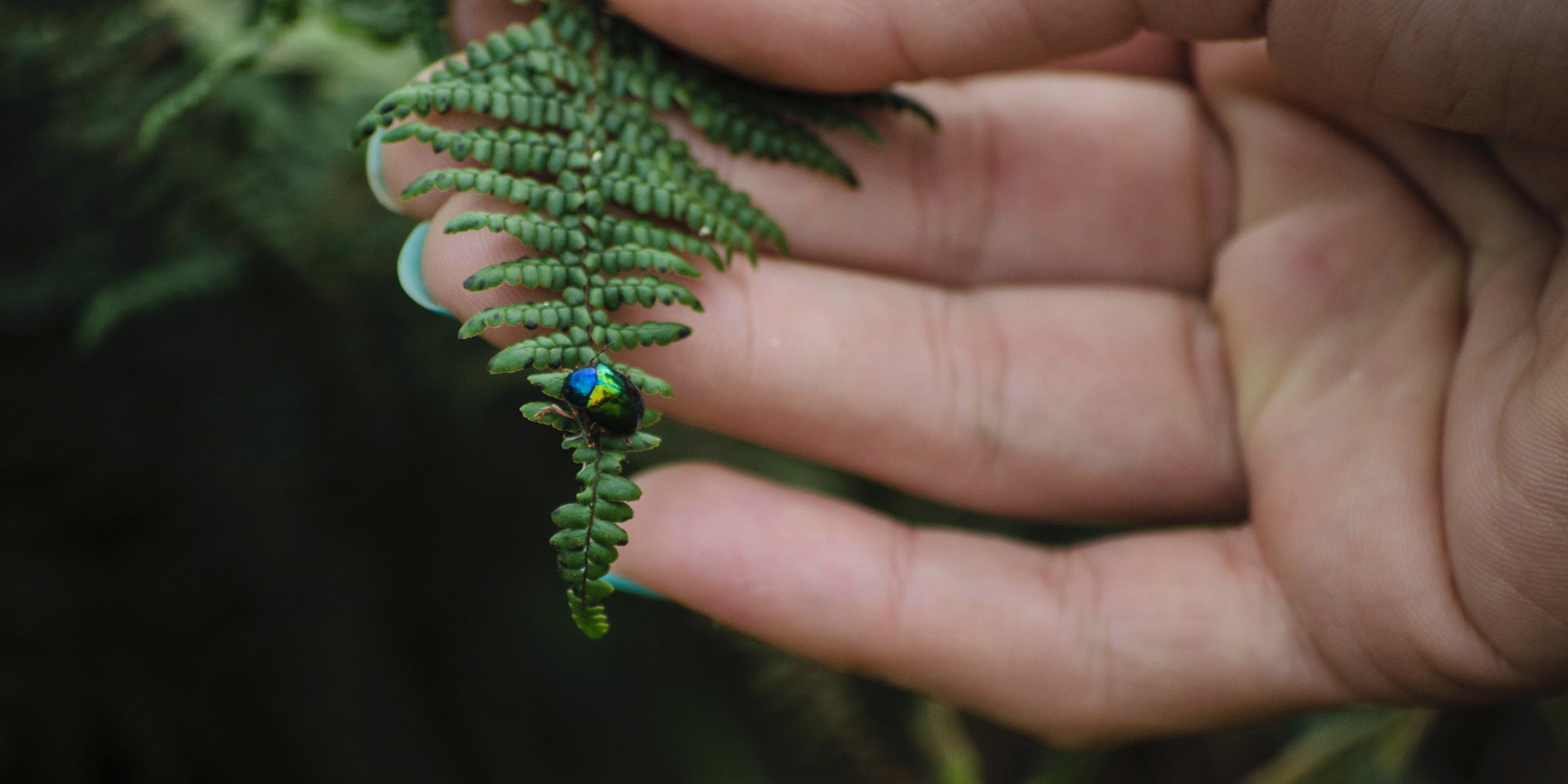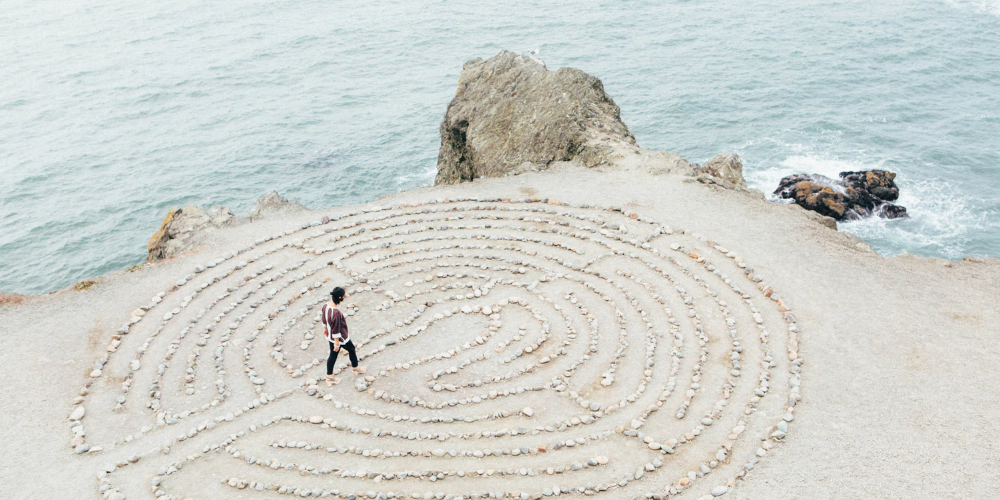Meditation is generally associated with peaceful behavior. Famous politicians like Gandhi and Mandela were peace-makers and they meditated – it is thus almost natural to assume that meditation might compel politicians, and maybe also ourselves, to engage in more positive politics.
Last year, Yuval Hariri, professor of history, published his seminal “21 lessons for the 21st Century”. The book reflects Hariri’s vision on the future of humankind, in particular in regard to our world and our politics to arrange that world. His lessons warn us and the bottom line of all lessons is: be aware.
His 21st lesson has a strong message: he advises us to meditate. This advice comes from his own experience of meditation, which he started in his twenties. Harari explains how meditation is a tool to observe our own mind directly, which can help us to experience that the deepest source of all our suffering lies in the patterns of our own mind. By observing reality as it is, detached from our interpretations of thoughts and bodily sensations, we can start to see reality for what it is and start to change our perspective. Harari doesn’t clarify into how a regular meditation practice can help us to take his other 20 lessons to heart, but his genuine plea impresses and might invite his readers to check out what meditation actually can do for them.
Shifting From Negative To Positive Politics
As a meditation teacher and a political psychologist, I often think about the role meditation could play to create, what I like to call, positive politics.
When we think of politics, we tend to think of adversary, antagonism, polarization, a struggle for power. We think of politicians blaming each other for things that are going wrong in society. We think of people organizing themselves in groups, pushing against others and fighting for their ‘being right’. We think of the sometimes very fierce political discussions we can have with people we care for and how these discussions seldom lead to a better understanding and respect for each other’s positions.
So, when we think of politics, we wouldn’t think so quickly of meditation. And that is not so weird, because most of us experience politics as something unpleasant, or even negative. The layman definition of politics was never said better than by the famous political scientist Harold Lasswell: “Who gets what, when and how”.
But let’s peel that definition back a little, by asking the question: what are politics for?
Read more: In a three-part blog series, Robert Leichtman explores how to create a mindful relationship with society and politics. Part one takes a look at negativity in mass consciousness.
The Purpose Of Politics: Leading A Good Life
Political processes are indeed nothing else than making sure that people (generally those who are in power) can arrange society in such a way that they as a group can lead a ‘good life’.
“What is ‘a good life’?” has been a core question of (political) philosophers since Plato. Since then, there have been numerous attempts to answer it, based on so many perspectives defining ‘good’ in very different ways, such as morality, pleasure, fulfillment, meaning, duty, and so on. Generally speaking, the answer is: the good life is the life one may dream of living. In that definition we can recognize the desire of anyone to strive for a life that excludes suffering and includes safety and meaning.
If we translate the quest for a good life to us as citizens, it shows why politics can become a battleground so quickly. After all, as no individual is the same, also our visions of what constitutes a good life aren’t the same. What I consider as a good life, might seem like hell to others. How can we make a good life for ourselves, is the central question of why politics exist. We divide ourselves in groups of (more or less) like-minded folks, and then we struggle or even fight with other groups to make sure we get what we want, when and how we want it. So, how can we make sure that all citizens in a political community will have access to their good life?
Being Part Of Democracy
Democratic politics, generally speaking, aim to make sure that this process will be fair, bound by rules that ensure the equality of all members of a society, and with respect for others who differ from us and prefer to live their lives different than we like it to be. It divides power over different groups so that all citizens within the (democratic) political community can find a good life for themselves and their loved-ones. But rules alone aren’t always enough.
We, as citizens of a political community, need to take responsibility for our roles in the political process. It is easy to blame others, to argue and say that ‘they’ are wrong (and we are right). It is easy to make politics about the struggle for power and to thrive on antagonism. But do we really want that?
Embracing Diversity
The saying ‘let’s agree to disagree’ sounds corny but there is a lot of truth in it. Our world, our communities are diverse and will always be diverse. It is up to us to start embracing that diversity and to consciously start to make the effort to agree to disagree.
Why? Well, nothing altruistic about it. It is basically our guarantee to be free within our own society. The bottom line is this: if we want to be free to live life in our way, as we feel it’s the right way to ensure a good life, we need to be willing to allow others to do the same. I know, it sounds like a paradox, in particular when those others seemingly disregard your right to be as you like to be. But true freedom lies in allowing diversity to exist, true freedom lies in the understanding that our view of the world and of what constitutes a good life isn’t the only view. True freedom starts with the recognition that others have the same right as you to their perspective and live accordingly.
Cultivating Political Tolerance
And this is where political tolerance comes in. Political tolerance — or as political scientists like to define it: the willingness to put up with the opinions and behavior of others we dislike — is regularly called the oxygen of democracy. Just having a democratic legal framework is often not enough. What citizens are feeling and doing within that democracy is what makes the wheels spinning.
Tolerance within democratic politics supports the feeling of equality, it supports the right to free speech and in particular the right to be different even when you are part of a small group. It is not something that can be institutionalized, not something that can be enforced by laws that easily. Tolerance is a quality, a value that we, as individuals, as citizens, as members of a community need to cultivate and foster ourselves.
Tolerance Is An Emotional Process
But tolerance is not just a philosophical idea that we can execute just like that. It is an emotional thing more than a cognitive thing. We often think that we are tolerant while our behavior shows that we are actually not so much. For instance, research shows that when we are asked if we feel that minorities need to be granted civil liberties, we agree. But if we are asked the same question about specific people who we basically dislike (e.g. people with another philosophy of life, from whom we feel THEY are not so tolerant themselves) we aren’t always that consistent in our tolerance. And there lies the problem.
If we want to be truly free within our political community, we need to be willing to embrace the diversity of thought and the diversity of being of that community. Genuine tolerance doesn’t come that easy. We will have to make some conscious effort to cultivate it.
How Loving-Kindness Meditation Can Help Finding Mutucal Desire
And this is where meditation can play a part. We already know from a vast body of (neuro)psychological research that a regular meditation practice increases our wellbeing. Meditating consistently decreases our stress levels and increases our ability to focus. Anyone who is meditating for some time experiences less self-obsessed thoughts and starts to see the world around us with more compassion. That sounds like a good starting point to become more tolerant. In particular, metta or loving-kindness meditation shows to lead to quick results. This practice rests on the principle that all beings share one desire, and that is to be happy. So, how different or diverse we might be, we can always find that mutual desire in each other. However, we need to make some effort to start seeing that.
Too often we are overwhelmed by our feelings and emotions, our pre-conceptions of others, our reactions to what others do or say. Loving-kindness meditation supports the process of becoming more aware of your own thoughts and responses, but it is in particular aiming to cultivate feelings of love and compassion for ourselves and others. Research shows that only a few weeks of a daily loving-kindness meditation practice helps to decrease prejudice and biases towards others (in particular towards those we dislike) and increased feelings of social connectedness.
Read more: Learn about the effects of negativity bias and how to rewire your mind.
Compassion & Acceptance Starts Within Ourselves
I feel the beauty of loving-kindness meditation is that it starts with sending love and compassion to yourself. And that is, in my book, the prerequisite of tolerating others. It starts by tolerating yourself first. Accepting the short-comings of others starts with accepting your own first.
We are not always aware of it, but when we feel irritated or nasty towards others, it is often a sign that we don’t acknowledge something about ourselves. We tend to project our fears and failures onto others and blame them for feeling like that. The harsher we judge ourselves, the harsher we tend to judge others. By acknowledging and compassionately allowing ourselves to be as we are with flaws and all, we open our heart and mind to acknowledge others as well.
Another aspect of loving-kindness meditation lies in embracing the feeling of the oneness in our desires. That all beings everywhere just want to be happy. When we can connect with this feeling on a regular basis, we can also start to cultivate our feelings of tolerance towards others. Even when we have difficulties with these others.
The Freedom Of Agreeing & Disagreeing
Loving-kindness meditation doesn’t ask us to agree with other opinions, it doesn’t ask us to excuse any behavior, or to feel anything different than what we truly feel. It only asks us to acknowledge our humanity, our shared desire for a good life, and that process truly can help us to start feeling different about the presence of others in our lives. It will happen over time, it is a process, but all in all, it is likely that loving-kindness meditation can positively influence tolerant behavior. And to bring positive politics, in which we embrace diversity, in which we learn to connect anyway, a little bit closer.
Of course, you never have to tolerate any behavior that physically hurts, abuses, discriminates, or worse. That is not what tolerance is about. Tolerance is about the freedom to be who you are, to think, feel and be a free person. It is never about limiting the freedom of others. It is about openness, having an open mind toward others. It is about the freedom of all to agree to disagree.
Positive Politics Come From Collective Tolerance
Politics will always be part of our lives. We need it to organize our lives. Democratic political practices allow us to have an open exchange of thoughts and ideas, so that together we can create a peaceful society. We, as citizens, as members of a community, have to take some responsibility in this process.
Tolerance towards others, who have different political ideas, different preferences, life styles, different cultures, is the oil that greases the wheels of the political process. True freedom starts with the recognition that others have the same right as you have to their perspective and live accordingly. And we will have to get very serious about that. Tolerance doesn’t come just like that. Tolerance is a quality we need to foster and cultivate. We will have to make some conscious effort. And meditation is a great way to support that effort.
Learn more about the value of tolerance for any political community and explore what tolerance means to you personally with Femke Bakker’s 10-day course “How To Tolerate Challenging Behaviors & Opinions”. Through the use of meditation, you’ll find out who it actually is that you find hard to tolerate, and what your intolerance tells you about yourself. The tools you will learn during this course will support you to, over time, really start meaning it when you say that you “agree to disagree”. Listen to day one now:
- How To Tolerate Challenging Behaviors & Opinions: Me and my world Femke Bakker 16:17







